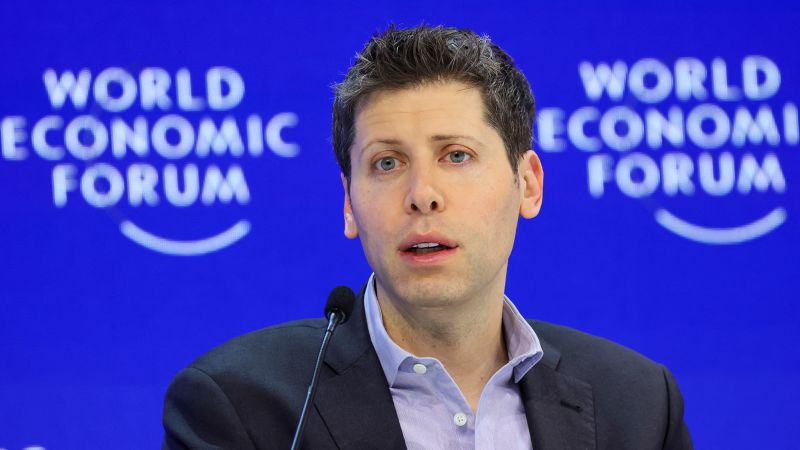Human individuals will continue to determine “what should happen in the world” despite the advancement of artificial intelligence, as stated by Sam Altman from OpenAI during the World Economic Forum in Switzerland. Altman, the CEO of the company responsible for ChatGPT, emphasized that AI excels in certain areas but falls short in life-or-death scenarios. He highlighted that AI can be accurate at times, exhibit creativity, but also make significant errors—making it unsuitable for controlling a vehicle. However, he noted its value in assisting with creative writing ideas or code development under supervision.
ChatGPT, among other generative AI models, has the capacity to generate content based on user inputs, potentially revolutionizing the global economy according to experts. Despite concerns about AI potentially causing harm to humanity or leading to widespread unemployment, Altman expressed a positive outlook. He mentioned that people have effectively enhanced their productivity through generative AI while being mindful of its limitations. Altman emphasized that generative AI provides humans with enhanced tools and capabilities but underscored the continued importance of human interaction.
The World Economic Forum in Davos has placed significant emphasis on AI this year, with various discussions exploring its societal, economic, and employment implications. The International Monetary Fund recently projected that AI could impact nearly 40% of jobs worldwide, replacing some roles while complementing others, potentially exacerbating income inequality.
During the forum, Salesforce CEO Marc Benioff echoed Altman’s sentiments, stating that AI is meant to enhance rather than replace human workers. He cited the example of a Gucci call center in Milan where the integration of Salesforce’s AI software led to increased revenue and productivity among employees.
Despite the optimism surrounding AI’s capabilities, both Benioff and Altman highlighted the importance of regulating AI systems to mitigate potential existential risks associated with the technology. Altman welcomed discussions about the negative aspects of AI, emphasizing the necessity of upholding high standards in its development and deployment.
Altman also touched upon the New York Times’ copyright lawsuit against OpenAI, labeling it as a “strange occurrence,” and recounted his brief dismissal and subsequent reinstatement by the OpenAI board in November, describing the situation as “absurd.” He concluded by acknowledging the need to maintain a sense of humor amidst such challenges.






